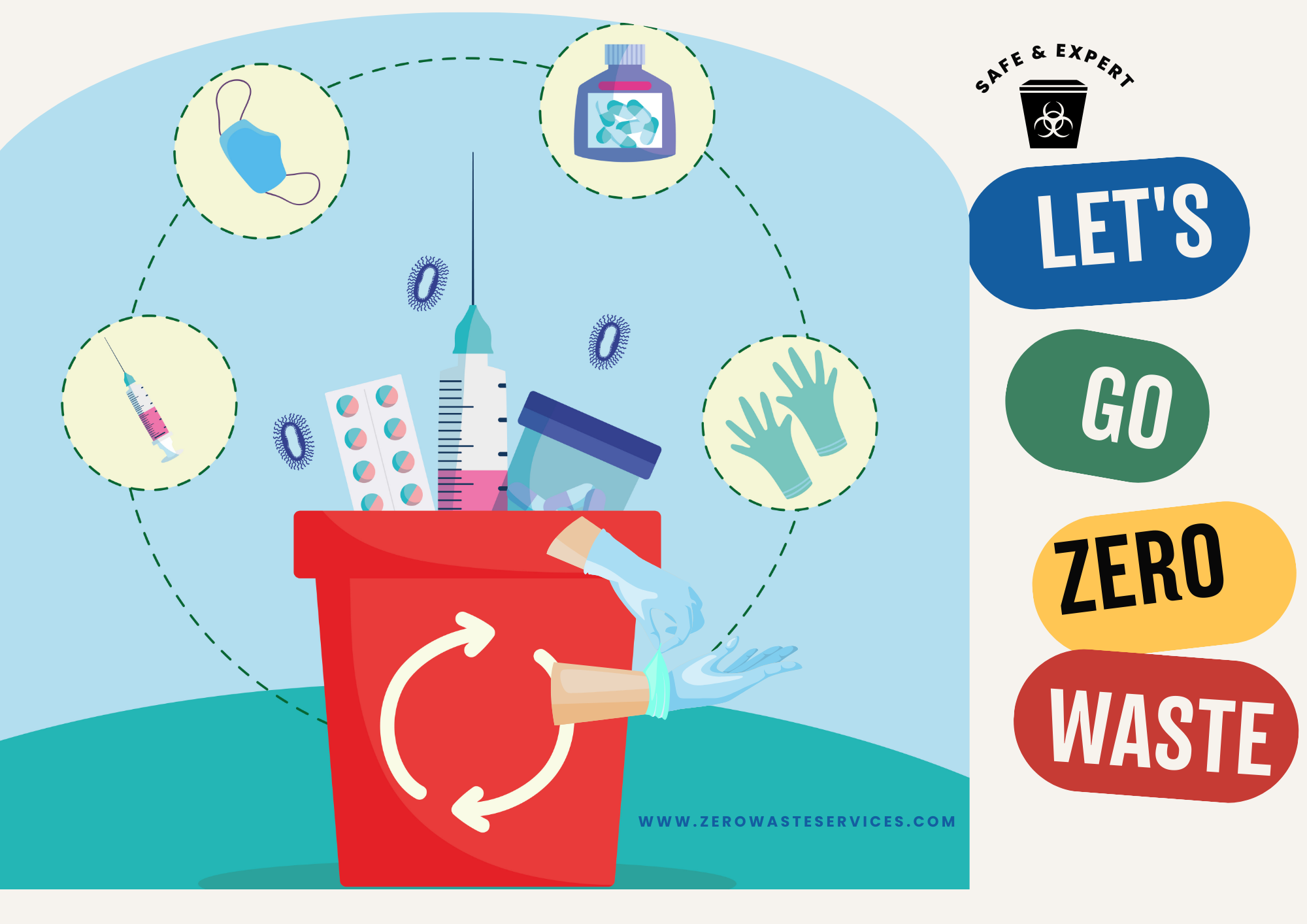To manage medical waste effectively, follow proper disposal guidelines and collaborate with licensed waste management companies. Medical waste poses a significant risk to human health and the environment if not handled correctly.
Therefore, it is essential to have a well-structured medical waste management system in place. This system should outline the proper disposal procedures, including the segregation, packaging, storage, transportation, and treatment of different types of medical waste.
Additionally, partnering with licensed waste management companies like Zero Waste ensures compliant and environmentally-friendly disposal of medical waste, facilitating sustainable waste management practices.
We will explore effective strategies and best practices to manage medical waste, promoting a safe and healthy working environment in healthcare settings.
Learn more about Medical waste management services and how it works!
How To Manage Medical Waste?

Managing medical waste is crucial for the safety of healthcare workers and the environment.
Proper management of medical waste is of utmost importance due to the potential risks associated with improper handling and disposal.
Improper medical waste management can lead to several risks such as contamination, infections, and injuries to healthcare workers, patients, and the general public.
Here are some steps to effectively manage medical waste:
1. Steps For Effective Medical Waste Management
Medical waste management is crucial for the safety of healthcare workers and the environment. Segregation and categorization involve separating waste into different categories based on its potential harm. Safe handling and transportation require proper packaging and labeling to prevent accidents. Proper storage and disposal methods involve using designated containers and following regulations. Training and education should be provided to healthcare staff on handling and managing medical waste.
2. Innovative Technologies For Medical Waste Management
Medical waste management is a crucial aspect of healthcare operations. Innovative technologies have revolutionized the process, making it more efficient and environmentally friendly.
On-Site Treatment Systems offer a convenient solution for medical waste management. They allow facilities to treat waste on their premises, reducing the need for transportation and minimizing the risk of contamination. These systems utilize advanced processes such as autoclaving and microwave technology to effectively sterilize the waste.
Waste-to-Energy Conversion Processes provide another sustainable approach to medical waste management. By converting the waste into energy through incineration or anaerobic digestion, facilities can not only eliminate the waste but also generate electricity or heat.
Nanotechnology applications have also contributed to improved medical waste management. Nanomaterials can be used to effectively filter and remove contaminants from medical waste, ensuring safer disposal and minimizing environmental impact.
3. Best Practices For Medical Waste Management
Implementing effective waste management plans is crucial in managing medical waste properly. These plans should include guidelines for segregation, storage, transportation, and disposal of different types of medical waste. Regular auditing and monitoring of waste management practices is essential to ensure compliance with regulations and identify areas for improvement.
Collaboration with professional waste management companies can greatly assist in managing medical waste effectively.
Zero Waste medical waste management team comes with the expertise, resources, and knowledge to handle medical waste in a safe and environmentally-friendly manner.
We can provide proper containers and disposal methods for different types of waste, ensuring compliance with regulations and minimizing the risk of contamination or harm to human health and the environment.
What Is The Importance Of Segregation And Categorization In Medical Waste Management?
Segregation and categorization play a crucial role in medical waste management. By separating waste into different categories based on its potential harm, it becomes easier to handle and dispose of the waste safely. Proper segregation helps prevent spreading of infections and reduces the risk of accidents during handling and transportation.
Why Is Safe Handling And Transportation Of Medical Waste Important?
Safe handling and transportation of medical waste are of utmost importance to protect healthcare workers and prevent environmental contamination. Proper packaging and labeling should be ensured to minimize the risk of accidents. This includes using puncture-resistant containers, double-bagging infectious waste, and securing sharps in designated containers. Following safety regulations during transportation further prevents any leakage or spillage.
What Are The Proper Storage And Disposal Methods For Medical Waste?
Designated containers with biohazard labels should be used for different types of waste. These containers should be properly sealed to prevent any leakage or release of hazardous substances. Disposal methods, such as incineration, autoclaving, or deep burial, should be followed as per local regulations and guidelines.
4. Future Trends And Challenges In Medical Waste Management
Future Trends and Challenges in Medical Waste Management
As the importance of sustainability grows, there is increasing focus on sustainable and eco-friendly solutions in medical waste management. This entails adopting practices that minimize environmental impact and promote recycling.
Furthermore, emerging technologies for safer and more efficient waste management are gaining traction. Automation, robotics, and advanced disinfection methods are being explored to enhance the safety and effectiveness of medical waste handling.
With the growing volume of medical waste, the industry is faced with the challenge of finding scalable solutions to address this issue. Efforts are underway to devise strategies for efficient collection, treatment, and disposal of medical waste to accommodate the increasing volume.
Conclusion
In managing medical waste, proper disposal is crucial for safety and environmental protection. Implementing best practices ensures compliance and minimizes risks. Regular training and proper labeling are essential for effective waste management. By staying informed and following regulations, healthcare facilities can contribute to a healthier and safer planet.